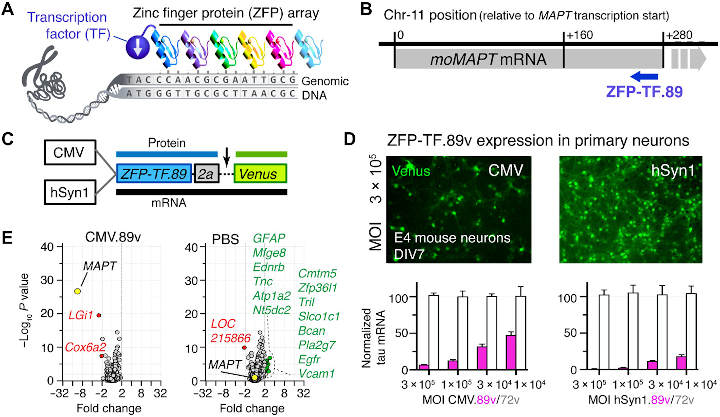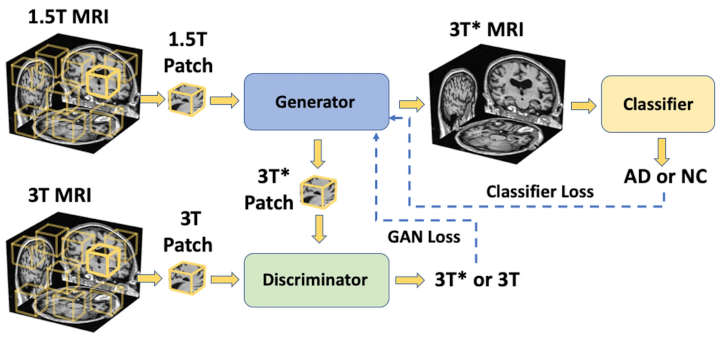A genetic engineering strategy has been utilized to reduce levels of tau protein in an animal model of Alzheimer’s disease, say investigators at Massachusetts General Hospital (MGH) and Sangamo Therapeutics Inc. The results could lead to a potentially promising treatment for patients with this devastating illness. The strategy, as described in the study1, involves a…
Tag: Alzheimer’s
Augmenting MRI-based Alzheimer’s Disease Classification With AI
Using a generative adversarial network, an advanced artificial intelligence framework based on game theory, researchers at Boston University School of Medicine processed brain images to generate a model that was able to classify Alzheimer’s disease with improved accuracy. Improving the diagnostic accuracy of Alzheimer’s disease is an important clinical goal. If we are able to…
Oxytocin Could Be Used To Treat Cognitive Disorders Like Alzheimer's
Oxytocin, the hormone that induces feelings of love and well-being within us, has been found to reverse some of the damage caused by amyloid plaques in the learning and memory center of the brain in an animal model of Alzheimer’s. One of the main causes of Alzheimer’s is the accumulation of a protein called amyloid…
Brain Imaging Can Predict Alzheimer’s-related Memory Loss
Tau protein has been imaged in the brains of living patients with Alzheimer’s disease by Karolinska Institutet researchers. The amount and spread of tau proved a predictor of future memory loss. Brain imaging for measuring tau can be useful both for improving diagnosis and for developing more effective treatments, say the researchers. “Modern brain imaging…
Alzheimer’s Risk: Your Genes Aren’t The Only Factor
The colour of our hair or the shape of our eyes is linked to our DNA, but the development of Alzheimer’s disease isn’t exclusively linked to genetics, suggest recently published findings. In the first study published about Alzheimer’s disease among identical triplets, researchers found that despite sharing the same DNA, two of the triplets developed…
Autism-related Genetic Mutations Occur In Aging Brains Of Alzheimer’s Patients
Researchers believe that autism is caused by mutations that occur sporadically in the egg or sperm or during pregnancy. Activity-dependent neuroprotective protein (ADNP) is a dominant gene whose de novo (during pregnancy) mutations are known to cause autism-related intellectual disabilities. A new Tel Aviv University study has found that ADNP mutations continue to occur in…
Alzheimer’s Subtypes Could Affect Future Treatments
A team of neuroscientists at Mayo Clinic in Florida examined a vital region of the brain and found that patterns of Alzheimer’s-related damage differed by subtype and age of onset. The researchers say these observations could have important treatment implications. “Alzheimer’s affects people in different ways. If we learn why it will help us untangle…
Tau-mediated RNA Splicing Errors Linked To Alzheimer’s Disease
A novel mechanistic link between alterations in RNA splicing and tau-mediated neurodegeneration in Alzheimer’s disease us reported in a collaborative study in the journal Cell Reports. The study, led by researchers at Baylor College of Medicine and the Jan and Dan Duncan Neurological Research Institute at Texas Children’s Hospital, integrates data from human brain autopsy…
Early Hippocampus Atrophy At Age 40 In Alzheimer’s Patients Found
Early atrophy of the amygdala and hippocampus at age 40 in patients with Alzheimer’s disease is revealed in new research from Europe. Researchers at the Laboratoire bordelais de recherche en informatique (LaBRI) (CNRS/Bordeaux INP/Université de Bordeaux), at the Aquitaine Institute for Cognitive and Integrative Neuroscience (CNRS/Université de Bordeaux/EPHE) and the University of Valencia (Spain) created…

